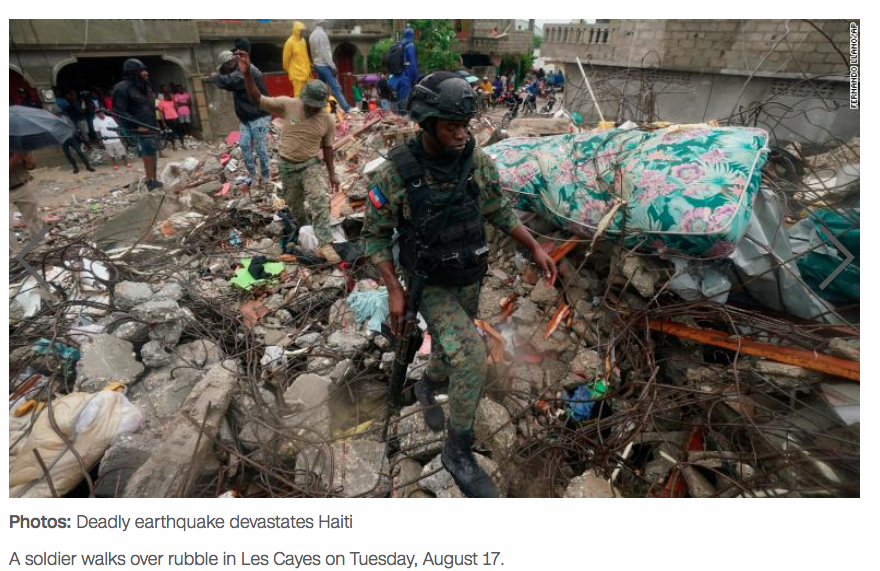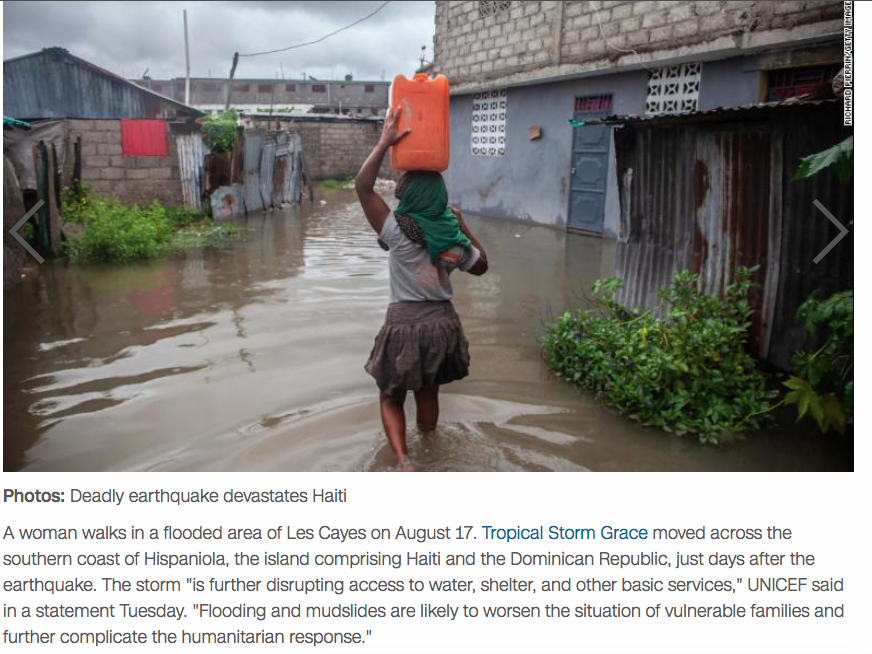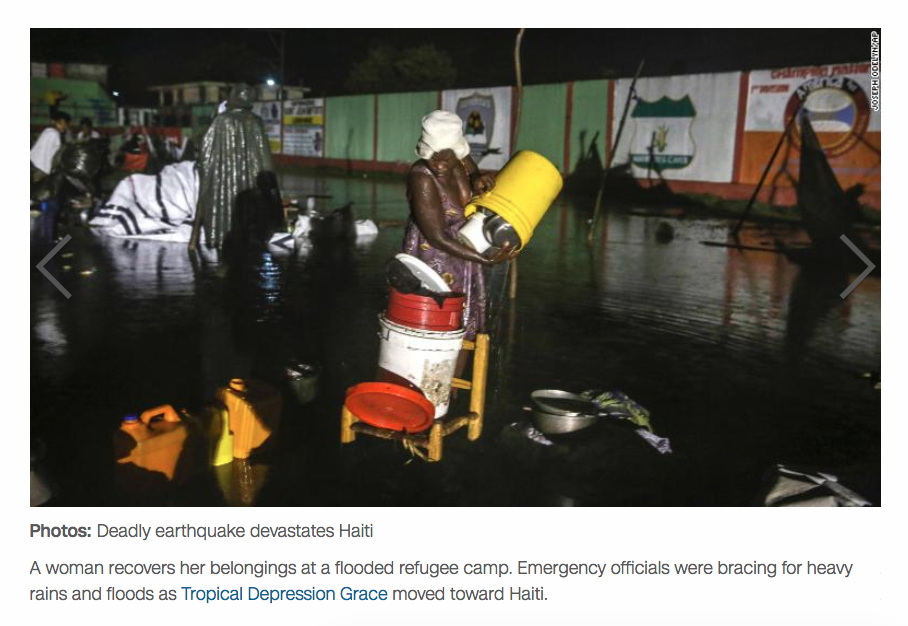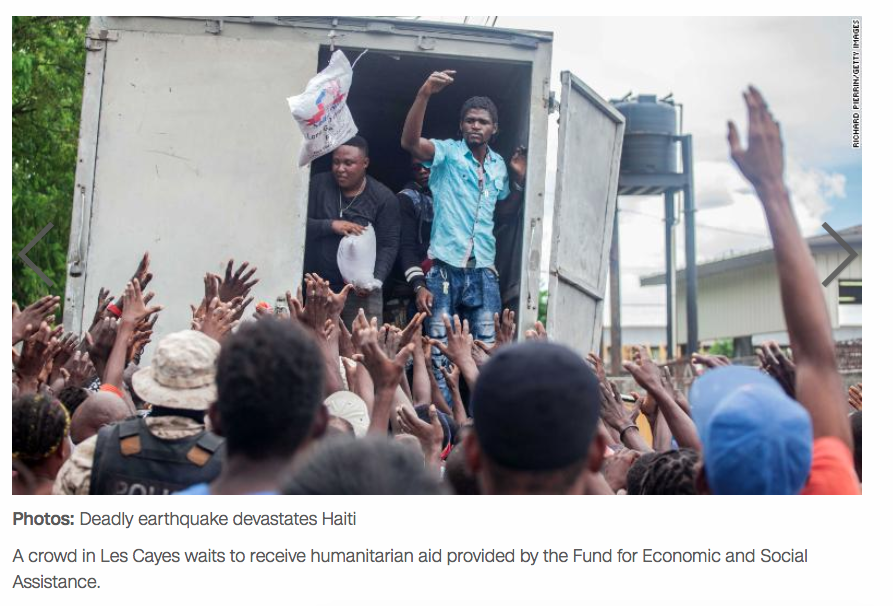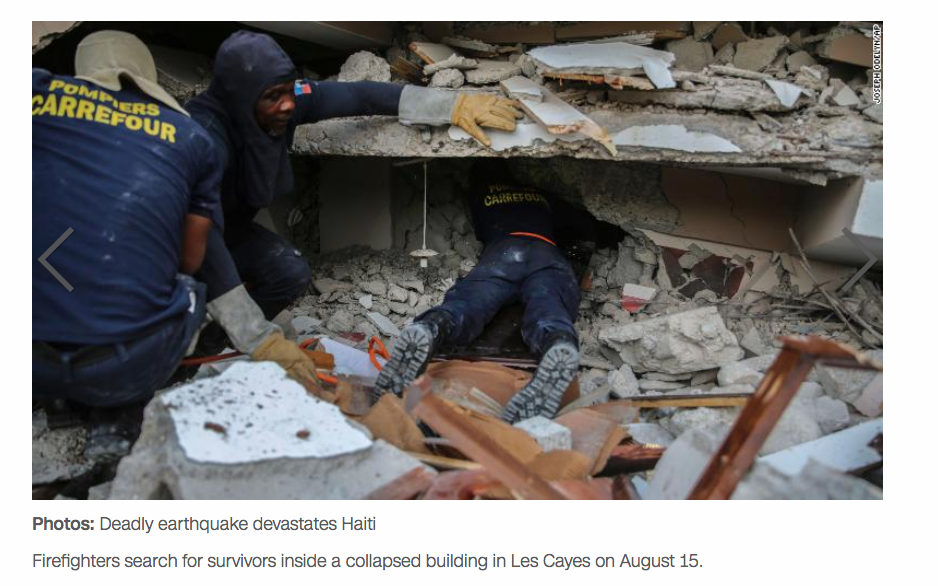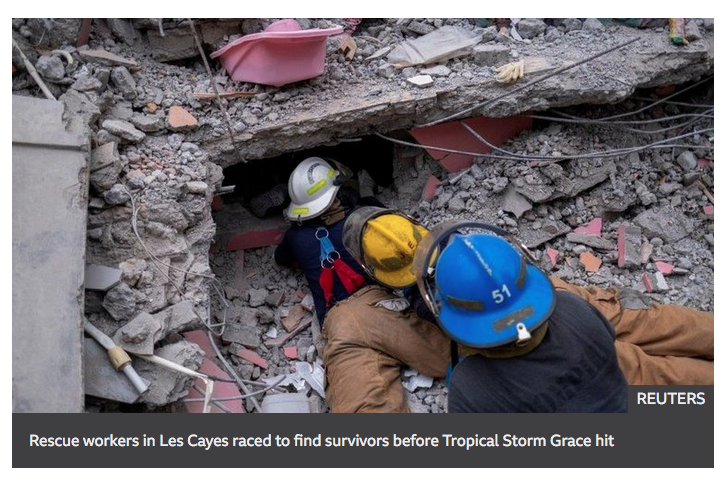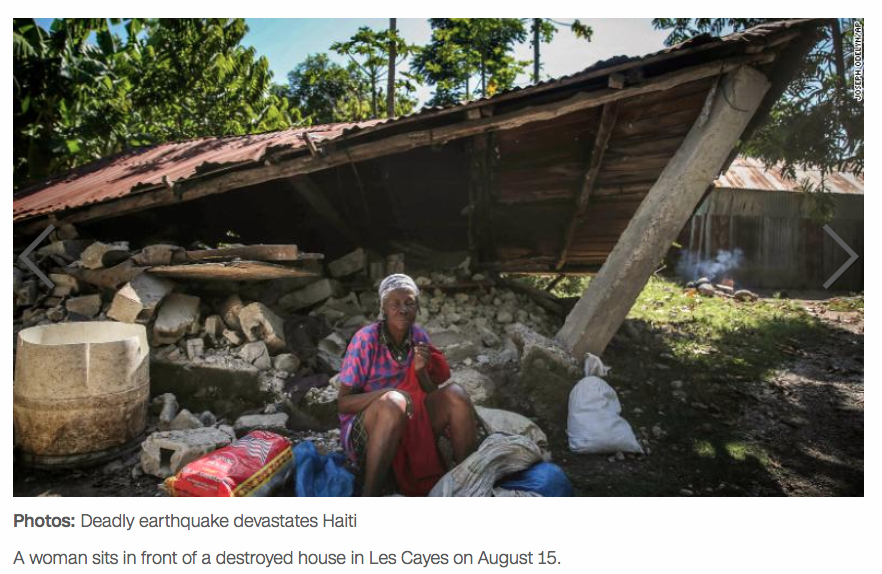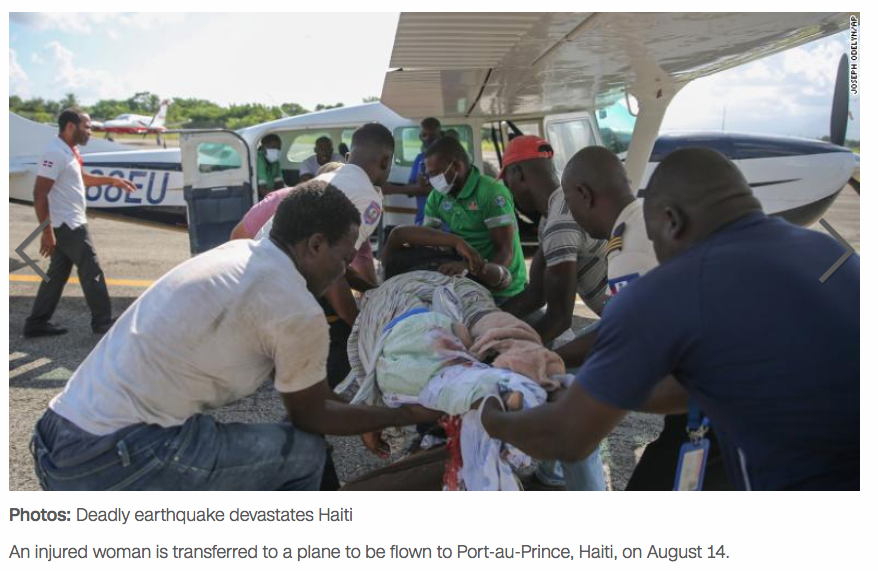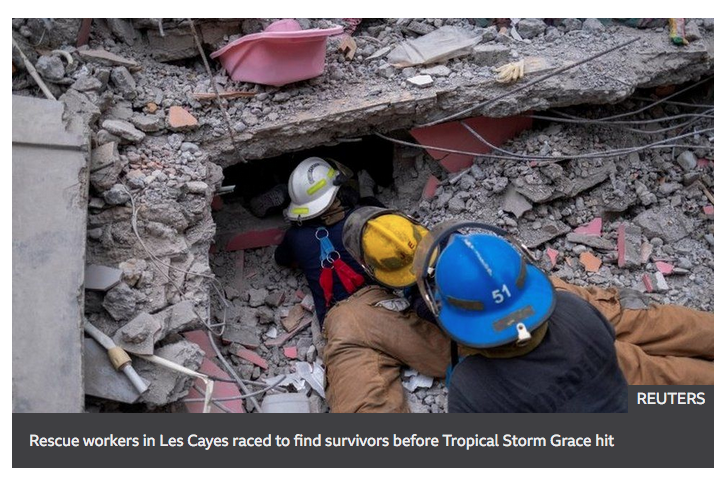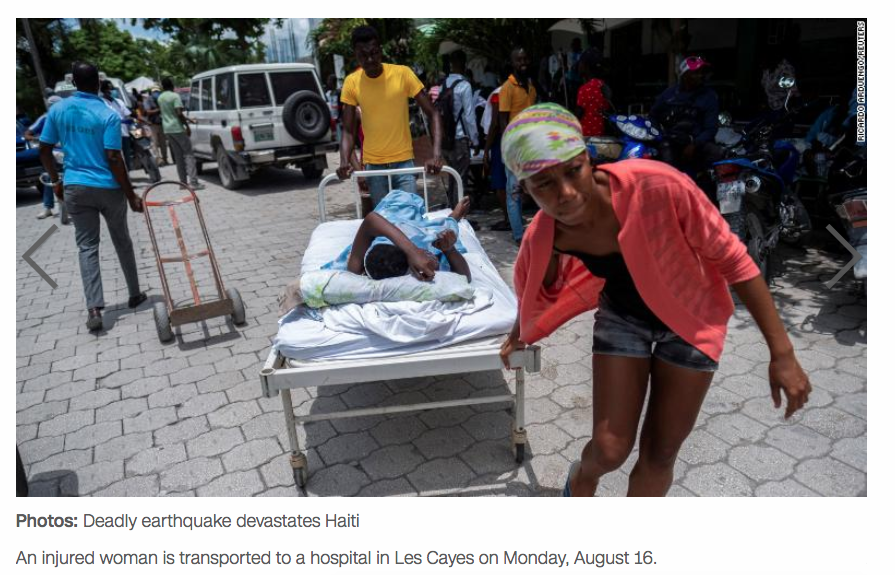
(CNN)Around 1.2 million people, including 540,000 children, have been impacted by the 7.2-magnitude earthquakewhich struck southwestern Haiti on Saturday morning, according to UNICEF.
The quake left at least 1,941 people dead and more than 6,900 injured; that toll is expected to rise in the coming days, but search and rescue efforts are being hampered by a lack of resources and by heavy rains, which have caused mudslides that blocked roads in the region.
Tropical Storm Grace, which hit the same region late Monday “is further disrupting access to water, shelter, and other basic services,” UNICEF said in a statement Tuesday. “Flooding and mudslides are likely to worsen the situation of vulnerable families and further complicate the humanitarian response.”
On Tuesday, donor countries and humanitarian organizations increased efforts to help the country. The Pentagon announced it had formed a joint task force to assist USAID in disaster relief efforts, while the United Nation and the European Union allocated $8 million and $3.5 million respectively in aid to Haiti.
Bruno Maes, UNICEF’s representative in Haiti, said he had witnessed strong winds and heavy rainfall in the area affected by the earthquake.
“Countless Haitian families who have lost everything due to the earthquake are now living literally with their feet in the water due to the flooding,” he said.
The agency is distributing tarpaulins, latrines, showers, water reservoirs and hygiene kits as part of a joint effort with partners, it said.
There are no rainfall reports or radar observation data available out of Haiti, but CNN meteorologists estimate that roughly 2-4 inches (60-100 millimeters) of rain has fallen over the period from 11 a.m. EDT Monday to 11 a.m. EDT Tuesday, based on estimates from a NOAA satellite.
Satellite imagery continues to show thunderstorms impacting western parts of Haiti, said CNN senior meteorologist Dave Hennen. Rain will likely continue over the quake zone until late afternoon or evening Tuesday, he added.
Haiti is prone to mudslides due to the topography of the island — the country is home to mountains more than 10,000 feet tall — and years of deforestation that has created an ecological disaster, said CNN meteorologist Michael Guy. Some 42 of the country’s 50 highest mountain peaks are completely devoid of vegetation, and only 1% of Haiti’s primary forest remains, he added.
The soil has also been destabilized by the recent earthquake and the aftershocks that followed. Add heavy rain over a very short period of time and you have the recipe for dangerous, even life-threatening mudslides, Guy said.
Aftershocks and mudslides have obstructed the roads between the cities of Les Cayes and Jeremie, with repairs underway.
Saturday’s quake destroyed and damaged tens of thousands of homes, according to the civil protection agency. It also blocked roads and wrecked infrastructure, making it difficult for vital supplies to reach the affected areas.
Local hospitals have told CNN that they are inundated with victims, and desperately in need of medical supplies.
Pentagon press secretary John Kirby said on Tuesday that US relief efforts were focused on “getting a clear picture of what the situation looks like on the ground… so that we can best coordinate and integrate USAID and other agency assistance to the people of Haiti.”
Kirby added that four field hospitals from US Southern Command would be set up in southern Haiti later this week.
Sarah Charles, assistant to the administrator of USAID’s Bureau for Humanitarian Assistance, told reporters on Tuesday that its response team to Haiti included 38 disaster experts, as well as 65 search and rescue members and four canines from the Fairfax County Fire Department’s Urban Search and Rescue team — who arrived in Haiti on Sunday.
Thousands of pounds of specialized equipment and medical supplies have also been deployed, along with food and hygiene relief supplies, she added.
The earthquake is just the latest challenge for the struggling country, which was shaken in 2010 by a disastrous 7.0-magnitude quake that killed an estimated 220,000 to 300,000 people.
Charles noted that they do not currently expect the current death toll to reach as high this time, although it’s likely “that number will climb in the coming days.”
“There are, though, significant humanitarian needs, and we’re doing everything we can to respond and respond at scale to those needs,” Charles said.
The earthquake struck at 8:30 a.m. local time on Saturday, at a depth of about 10 kilometers (6.2 miles); its epicenter was about 12 kilometers (7.5 miles) northeast of Saint-Louis-du-Sud in the southwest part of the country.




